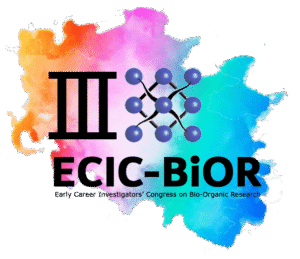
Dr. Javier Pérez García
Department of Epidemiology and Population Health
Stanford University (United States of America)
Chronic respiratory diseases affect over 454 million people worldwide and rank as the third leading cause of mortality [1]. Asthma is the most prevalent chronic disease in children and can usually be controlled by using bronchodilators and anti-inflammatory drugs. However, treatment response to current therapies is heterogeneous, and 10% of patients do not respond to these treatments, experiencing an unresolved severe asthma. They often experience life-threatening worsening episodes known as exacerbations, which carry a significant burden to both patients and healthcare systems [2].
Epigenetics encompasses multiple mechanisms that regulate gene expression without modifying the DNA sequence. DNA methylation (DNAm) is the most widely studied epigenetic marker [3,4]. Research into the role of epigenetics in chronic respiratory diseases, particularly through epigenome-wide association studies (EWAS), has been of great interest due to its potential to mediate the interaction between genetic and environmental factors. DNAm from blood and nasal samples are the most studied in asthma research. While blood DNAm markers may capture immune and inflammatory systemic mechanisms, nasal samples can provide insights into environmental exposures and airway pathophysiology. Although most studies have focused on asthma susceptibility [3], the relationship between epigenetics and asthma therapies is less understood [4].
Moreover, growing evidence suggests that aging significantly contributes to the pathogenesis of chronic respiratory diseases, which is linked to epigenetic changes over the lifespan [5]. DNAm predictably changes over a lifespan, and DNAm markers, known as epigenetic clocks, can quantify biological age (epigenetic age). The deviation of biological age from chronological age is interpreted as biological age acceleration or deceleration [5]. Recent studies suggest that accelerated epigenetic aging is associated with poor respiratory health [5], supporting that exploring the influence of epigenetic aging on chronic respiratory diseases could lead to novel therapeutic strategies.
This lecture will focus on presenting advances in the use of epigenomic approaches for identifying epigenetic biomarkers associated with asthma therapies [6,7], as well as the study of epigenetic aging in chronic respiratory diseases development [8].
References:
- EClinicalMedicine, 59 (2023) 101936
- Ann Allergy Asthma Immunol, 123 (2019) 564-572.e3
- J Allergy Clin Immunol, 152 (2023) 582-590
- J Allergy Clin Immunol, 155 (2025) 298-315
- Eur Respir J, 64 (2024) 2401257
- J Allergy Clin Immunol, 151 (2023) 1503-1512
- Clin Epigenetics, 15 (2023) 156
- Eur Respir J, In Press (2025) DOI: 10.1183/13993003.00293-2025
Javier Perez-Garcia is a postdoctoral scholar in the Department of Epidemiology and Population Health at Stanford University. He holds a B.Sc. in Pharmacy (2019) and Ph.D. in Health Sciences (2023) (both awarded by the Extraordinary and Excellence Awards for Degrees in Health Sciences) from the University of La Laguna (Spain).
His research is focused on the integration of multi-omic data (e.g., genomics, epigenomics, transcriptomics, and microbiome) to identify potential biomarkers of treatment response for complex diseases like asthma. His research background includes experience both in molecular biology techniques (e.g., DNA extraction and sequencing libraries preparation) and bioinformatic analyses (e.g., processing of raw omic data, association studies at genomic scale, or multi-omic integration through machine learning and quantitative trait loci analyses).
Dr. Perez-Garcia has published 24 peer-reviewed articles in international scientific journals (88% in Q1 and 58% in D1), being the first author of 11 publications. He has coauthored over 60 conference communications and is the principal investigator (PI) of an ongoing research project focused on the interaction of the epigenome and microbiome in the context of asthma treatment response.
